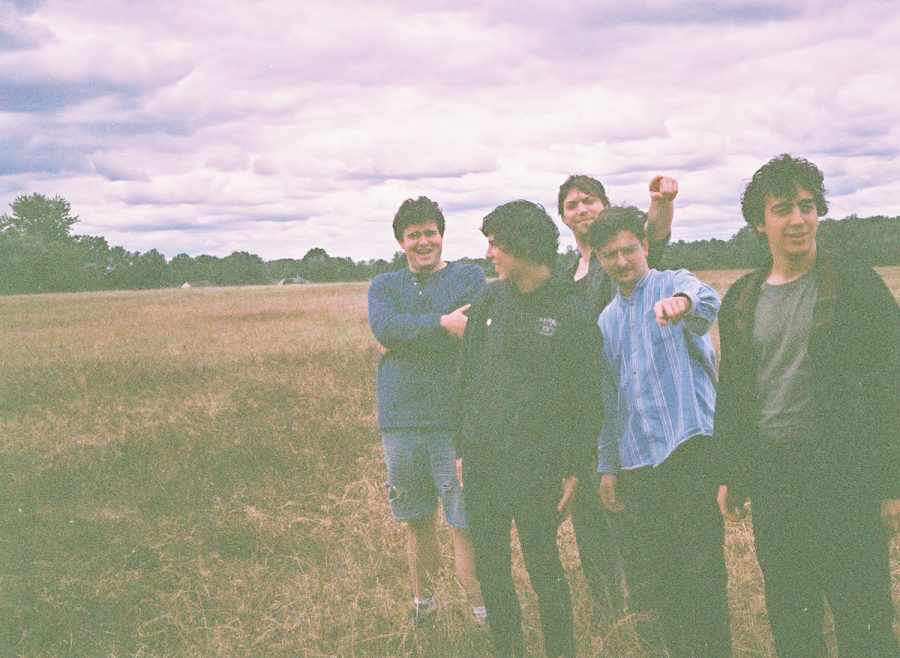Twin Peaks ‘wizard’ shares DIY magic
Twin Peaks will be performing at Thalia Hall, 1807 S. Allport St., Dec. 29, 30,and 31.
December 12, 2017
Since he first picked up a bass guitar to play in a talent show in sixth grade, Cadien James, indie rock band Twin Peaks’ frontman and self-proclaimed “wizard of the band,” has had a passion for playing music.
Growing up in Rogers Park, James formed the band with friends Clay Frankel, Jack Dolan and Connor Brodner, while they were attending Jones College Prep, 700 S. State St., in 2010.
Originally named Friend, the band started in the DIY scene and played concerts and recorded songs in basements. The group has performed at South by Southwest and Columbia’s Manifest Urban Arts Festival in 2015. Twin Peaks will be performing at Thalia Hall, 1807 S. Allport St., Dec. 29, 30,and 31.
The Chronicle spoke with James about Twin Peaks and Chicago.
THE CHRONICLE: How has Twin Peaks‘ music evolved since 2010?
CADIEN JAMES: We went from being a straight-up punk group to getting a lot of country and Americana [sounds]. We had [keyboardist and guitarist] Collin Croom a couple years in, and that totally changed the game. He’s done one studio record, a live record and the single series with us, so he’s made us 10 times better because he’s very talented. That’s been a huge switch, but we’ve got the same ethos as always.
How did growing up in the Chicago music scene influence your music?
It was nice growing up and seeing a lot of bands give it their all—people playing every weekend, playing in basements—going to shows all the time. It’s a very active music community, so I think that [gave] us the energy to go out and get it, which definitely is still how we run the game.
How has being in the DIY scene influenced the way you make music?
It taught us to work hard and that whether you’re playing to 10 people or 15,000 people, if you want them to enjoy it, you [have to] have a good time onstage and enjoy playing together because that’s what seems to be infectious. We definitely learned that playing in basements. Sometimes, [we are in] really exciting environments, and sometimes it’s really weird and awkward, but [we] do the show regardless.
Why did the band change the name from Friend to Twin Peaks?
I don’t remember where Friend came from. Maybe it was that Grizzly Bear made a record called Friend [and] then we nicked it from there. We always nick things from stuff; we’re just ripoff artists. [For] Twin Peaks, my brother was watching the show and thought [the name] sounded cool. We didn’t like the name Friend because we were 15- and 16-year-olds [who said], “Man, that’s weak,” so we went with Twin Peaks and didn’t realize how big of a show it was.
In a previous interview, you said you didn’t like overpaying for weed; is that still true?
When I was a real big pothead, that used to grind me down. It’s getting better out here though; prices are getting better everywhere. I don’t smoke a ton of weed anymore. There’s a couple guys [in the band] who are still big smokers, but [it’s] not an everyday [practice for] myself anymore.
When did you first realize that you wanted to be a musician?
[I was] playing with the guys and just having a blast. Then [we were] going on our first tour. We did that first tour of playing basement shows across the country and sleeping on couches. Traveling with your best friends cemented for me that this was what I wanted to do my whole life.
What Chicago restaurants do you miss when you are on tour?
There are a lot of good taco places [in Rogers Park]. J.B. Alberto’s [is a] great pizza place. Noon Hour Grill: That place is f–king sick. It’s only open 12 [p.m.]–4 [p.m.], and some days, it doesn’t open. It’s just [run by] one really old lady, but it’s such good [food].
What was it like growing up with your dad owning the Heartland Cafe?
That was a very objectively unique restaurant. It was active in the arts with having bands from all over the world play there. It was politically active: Obama spoke there, [and] Harold Washington did events there when he was running for mayor. They ran a radio show that they still do… which speaks to people in the arts, politics [and] sports. It’s always been a really big community center more than it was a restaurant to me.







